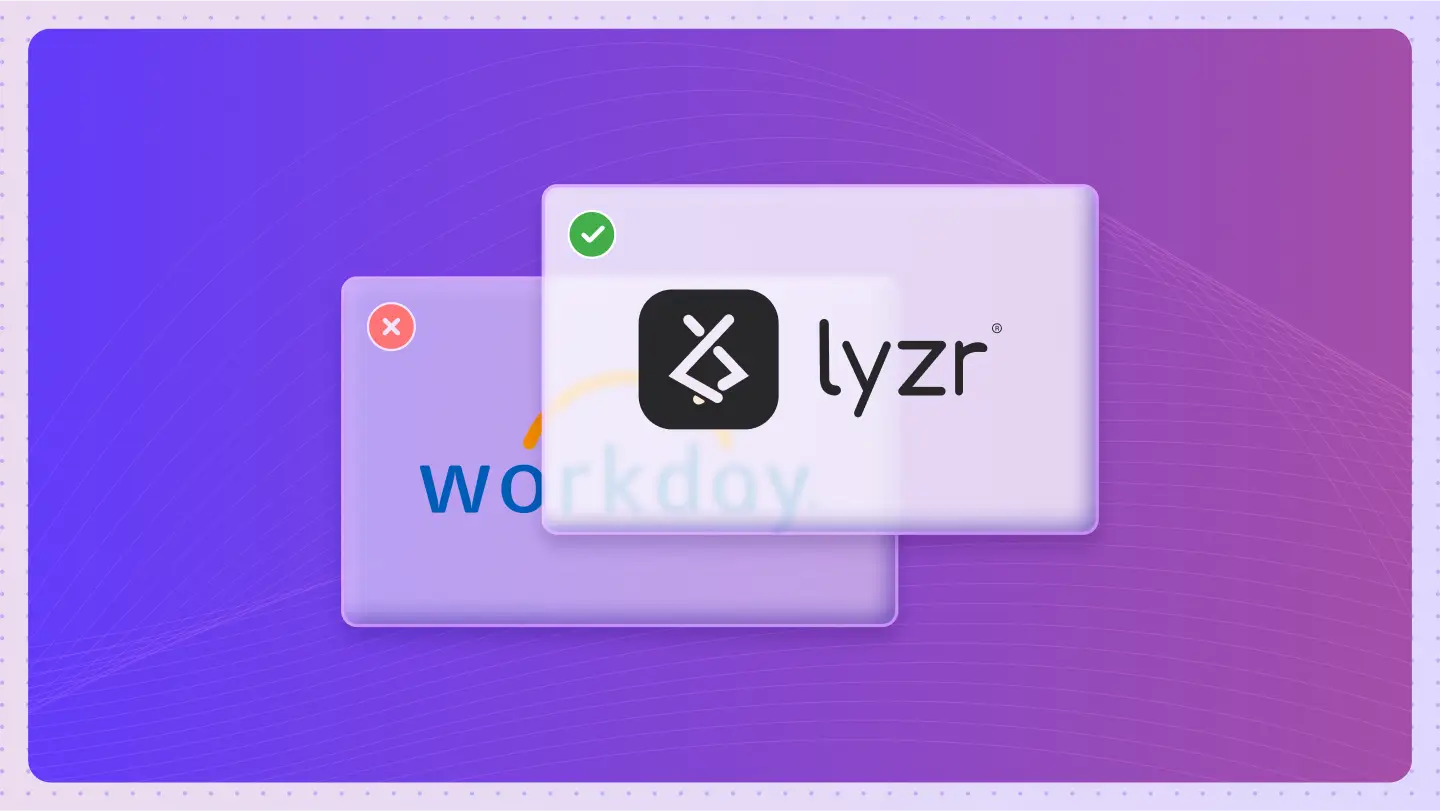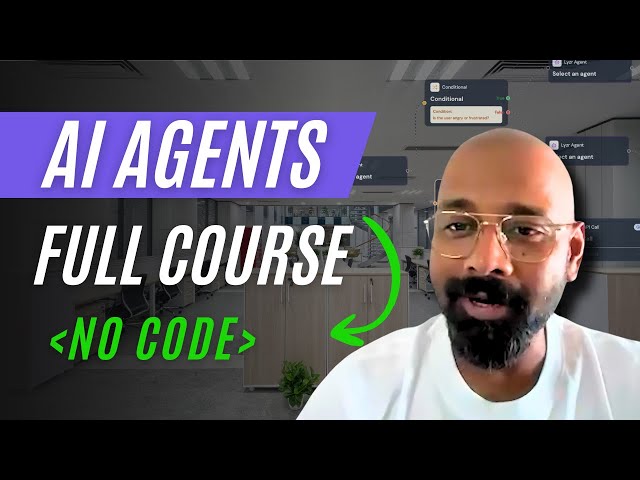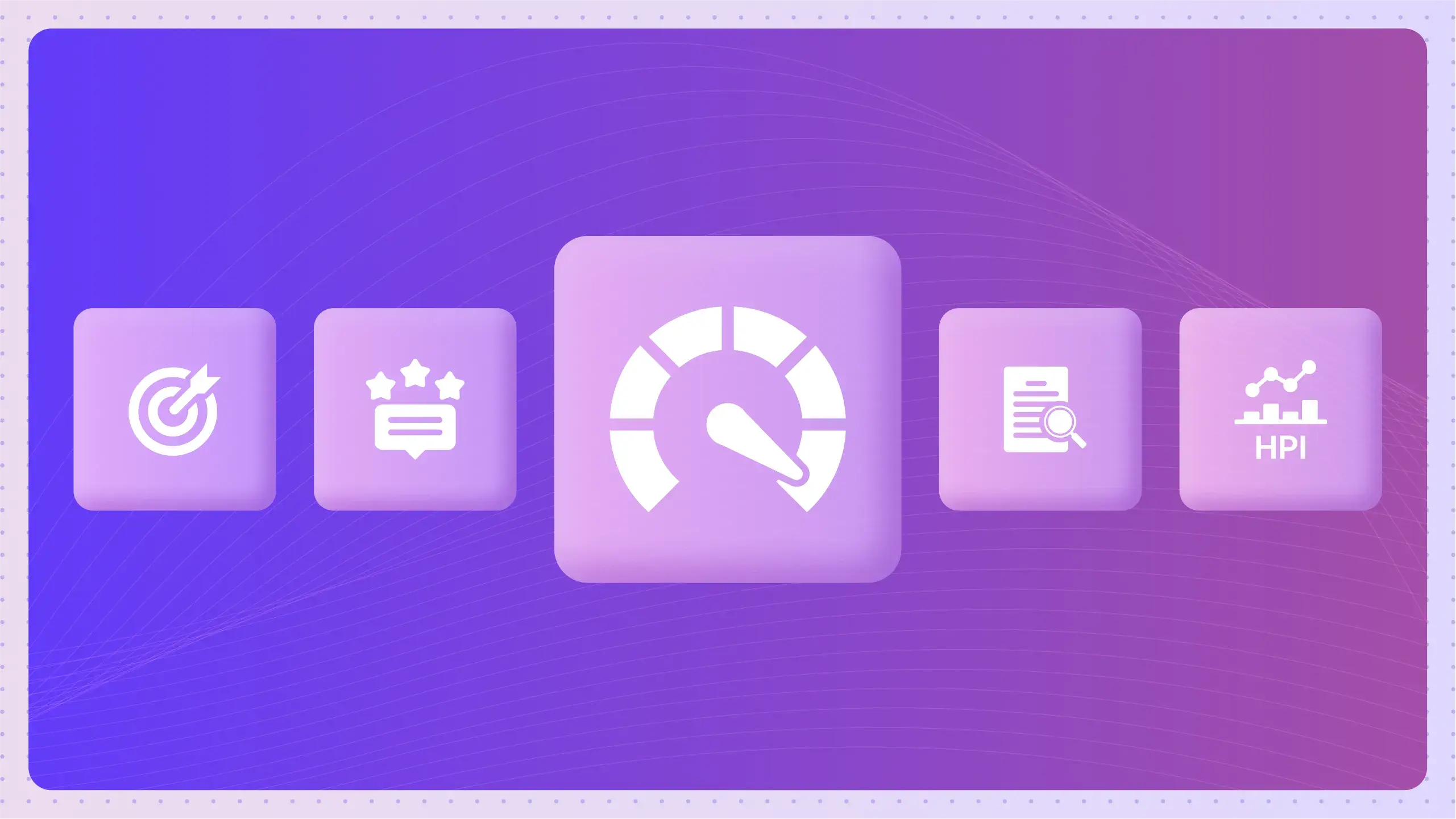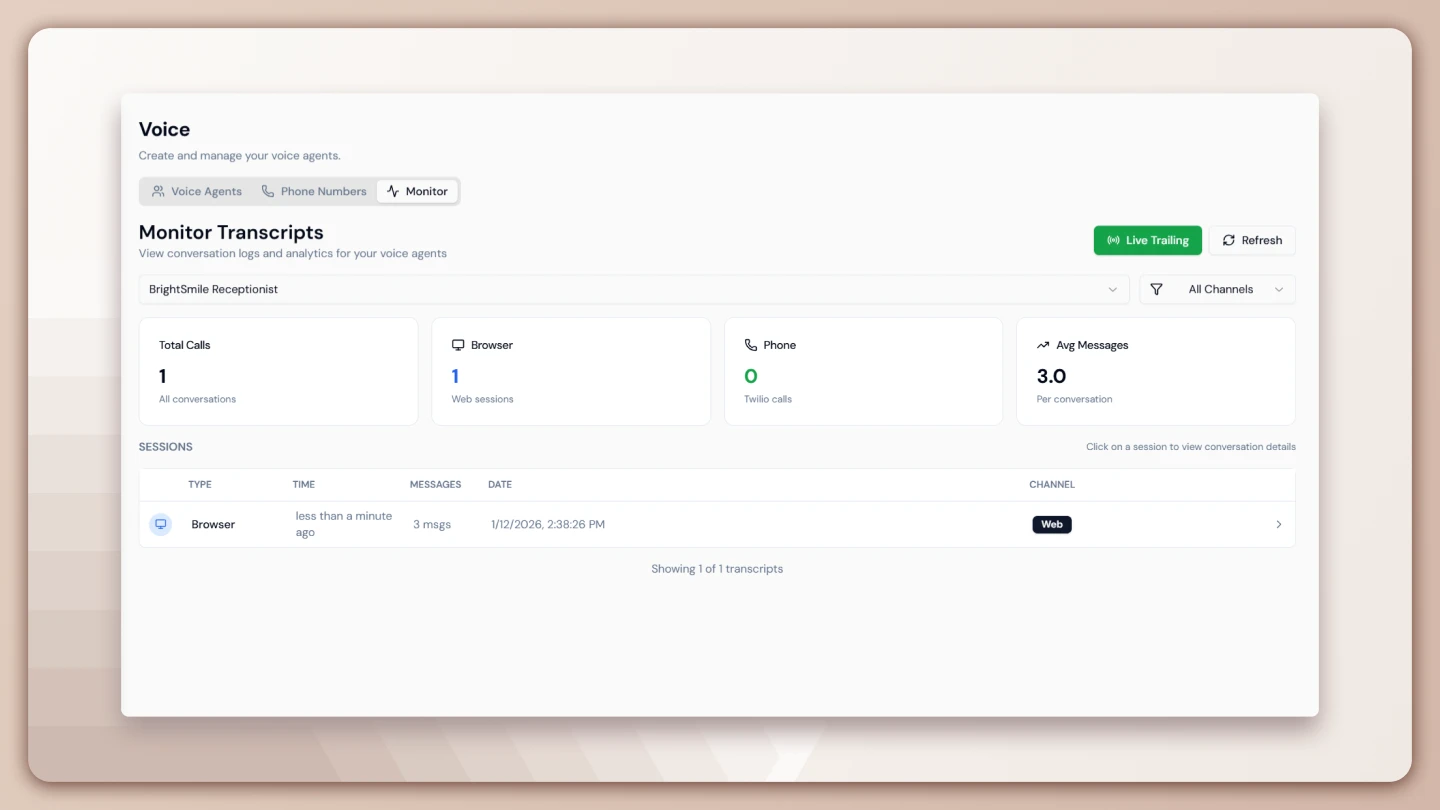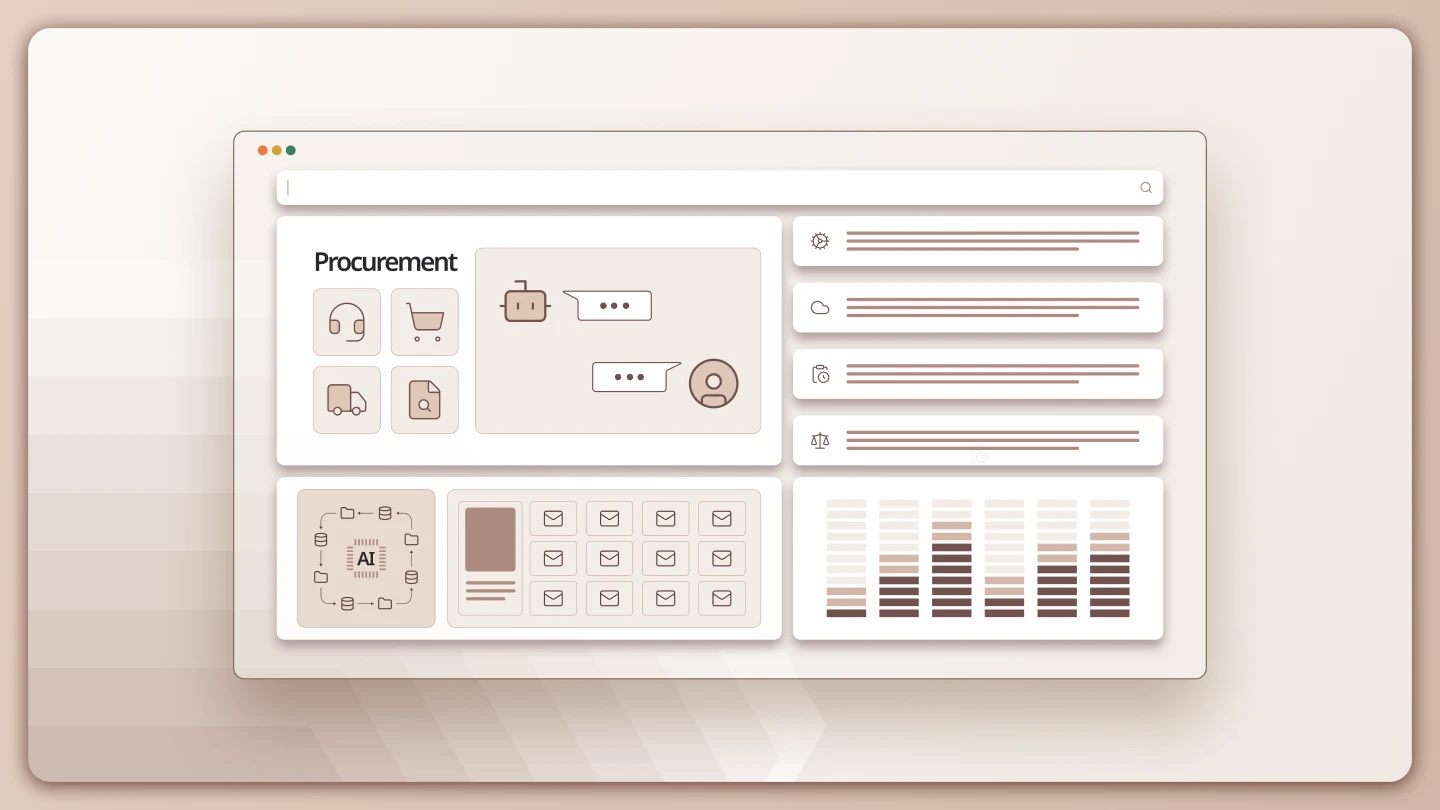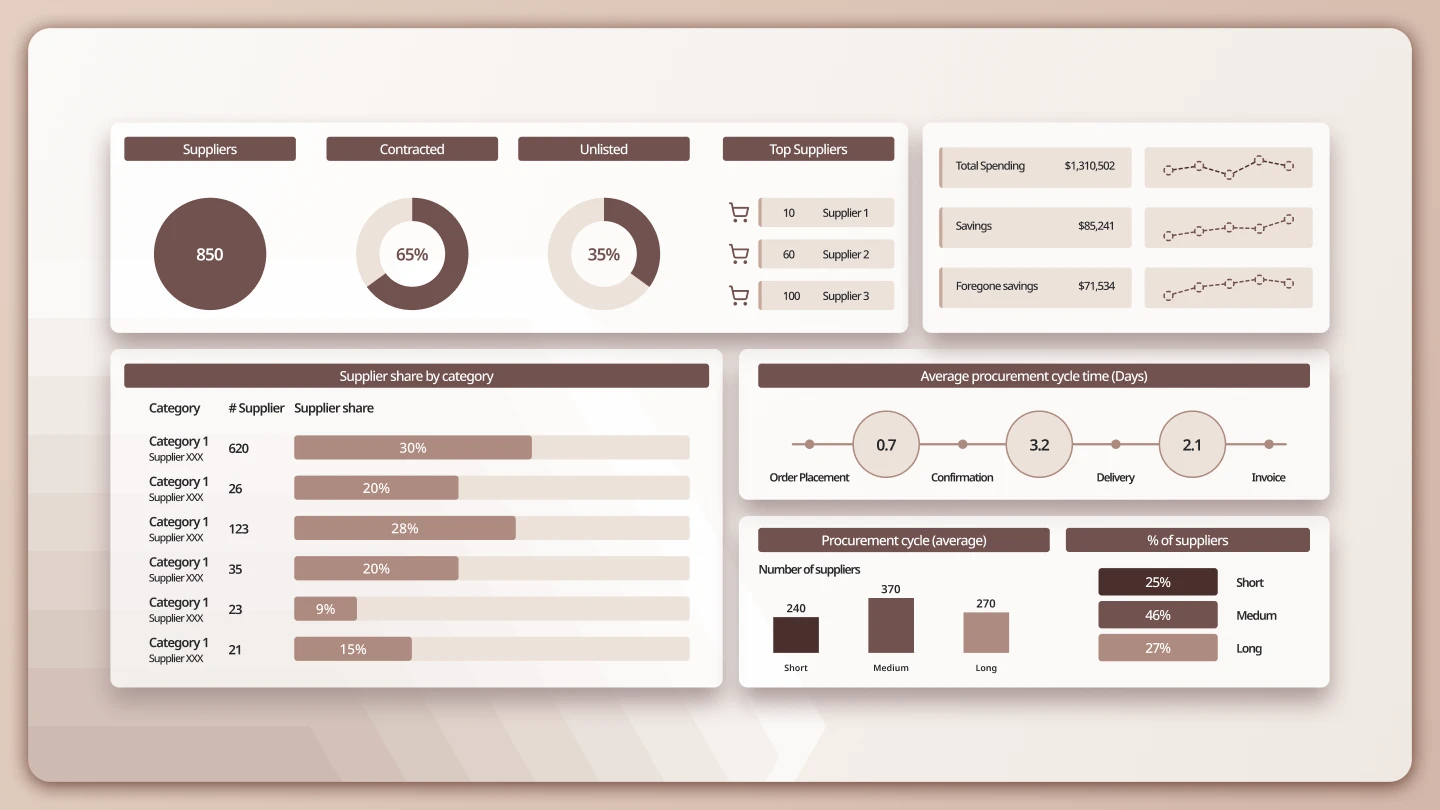Table of Contents
ToggleHow would you rate yourself out of 10 in your current role?A hesitant 6? A confident 8? Or maybe a tired 4 waiting for your next break?
Whatever the number, here’s the real question:
Are you growing?
Because performance isn’t just about metrics or ratings it’s about movement. Growth. Direction.
Yet even after decades of HR innovation, employee performance management continues to be one of the most broken systems inside organizations.
Despite hundreds of tools, frameworks, and OKR dashboards, something is still missing.
Why?
Because performance management has been treated as a process not a conversation.Countless people have tried countless tactics to improve employee performance, leaving no stone unturned.
So, why is it still a burning issue?
Think of the touchpoints when you can improve anybody’s performance: when they join, when they struggle, when they achieve, when they stagnate.Performance management isn’t just about yearly reviews or occasional feedback it’s about continuous, timely interventions that drive real growth.Yet, traditional methods often fall short. Feedback comes too late. Goals get lost in the shuffle. Recognition feels inconsistent.
AI changes that. By analyzing data in real time, identifying patterns, and delivering personalized insights, AI turns performance management from reactive to proactive.
Read on to find out more.
What is the current performance management process?
The Broken Loop of Traditional Performance Management

Traditional performance management systems were designed for predictability.
Annual reviews, static goals, and delayed feedback made sense in a slower world.
But today, the pace of work is real-time. Teams are distributed. Projects shift weekly.
Waiting six months to tell someone how they’re doing is not just inefficient it’s irrelevant.
Most systems today still suffer from:
- Delayed feedback – Reviews come too late to drive change.
- Generic goals – One-size-fits-all doesn’t inspire anyone.
- Inconsistent recognition – Achievements often go unnoticed.
- Manager overload – Too many reviews, too little insight.
The result? Employees disengage, motivation dips, and companies lose their best talent not to competitors, but to stagnation.
Let’s see Google’s Approach to Performance Management
Take Google as an example. Their performance management system blends structure with flexibility a model worth learning from.
They run a two-part annual review cycle:
- A mid-year “preview” to recalibrate goals.
- A full-year review that includes 360-degree feedback from peers, reports, and managers.
Employees start with self-reflection. Managers assess both results (what you achieved) and behaviors (how you achieved them).
They even evaluate “Googleyness” cultural fit, collaboration, and curiosity.
This system isn’t perfect, but it’s telling: performance isn’t just about output it’s about how you show up.

The Shift: From Reactive to Proactive
Companies are finally realizing that performance management should guide people, not grade them.
Over 90% of organizations have already updated their performance practices, and:
- 96% say it’s now simpler and more efficient.
- 83% report better-quality conversations between employees and managers.
But the real leap forward came when AI entered the picture.
AI makes performance management continuous, data-driven, and fair.
It transforms the process from a reactive event to a proactive system — one that understands trends, detects friction early, and personalizes feedback.
How AI Improves Performance Management
Performance management has shifted from rigid annual reviews to more continuous and data-driven approaches. Companies are prioritizing systems that improve efficiency and foster meaningful feedback.
90% of organizations have updated their performance management practices, leading to:
- 96% reporting a simpler, more efficient process
- 83% seeing better-quality conversations between employees and managers
As these improvements continue, performance management AI is making performance management more objective, timely, and insights
Let’s get specific here’s what AI is changing inside HR and performance management systems:
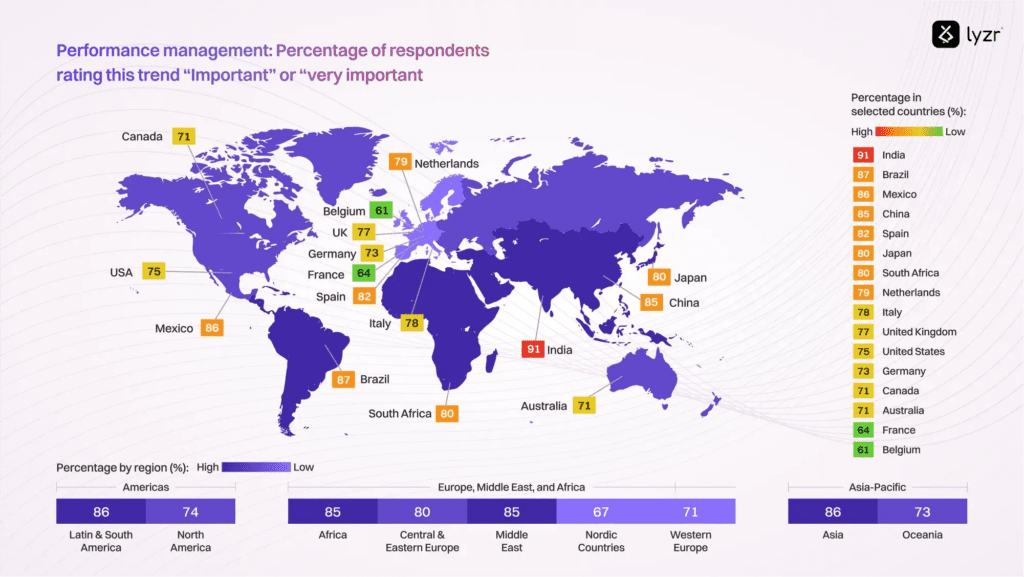
1. Time Back for Managers and HR
AI automates the heavy lifting data collection, progress tracking, and review drafting.
Tasks that once took days are now 30–50% faster.
Managers can finally spend time on coaching, not spreadsheets.
| Task | Time Saved with AI |
|---|---|
| Performance review drafting | 30–50% faster |
| Data collection & analysis | 60–70% faster |
| Progress tracking | Real-time |
2. Reduced Human Error
Manual reviews are prone to bias and mistakes.
AI detects inconsistencies, prevents typos, and analyzes patterns objectively.
| Common Error | AI Fix |
|---|---|
| Data entry typos | Automated input checks |
| Misread trends | AI-driven analytics |
| Subjective bias | Bias detection & adjustment |
3. Real-Time, Actionable Feedback
Instead of feedback arriving once a year, AI enables ongoing micro-feedback.
Employees can track performance daily, get nudges, and act on insights immediately.
| Without AI | With AI |
|---|---|
| Feedback only at reviews | Continuous insights |
| Unclear progress | Real-time dashboards |
| Missed achievements | Instant recognition |
4. Data-Backed Decision-Making
AI aggregates inputs from Slack, Zoom, HR tools, and reports providing a complete view of performance.
Managers no longer rely on memory; they rely on data.
5. Personalized Growth & Engagement
AI doesn’t just evaluate performance it nurtures it.
By analyzing behavioral and skill data, it recommends learning paths, coaching tips, and next-step goals unique to each person.
Engaged employees don’t need motivation they need clarity.
AI delivers that.
Real-World Example: Lyzr’s AI Agents for Performance Management
Lyzr is redefining how HR leaders manage performance not through dashboards, but through autonomous AI agents that act like your personal HR team.
Here’s how it works:
- Performance Report Analysis Agent – Aligns reviews with your company’s frameworks (e.g. Zomato-style evaluation systems).
- Employee Performance Analyst Agent -Tracks growth, identifies gaps, suggests personalized next steps.
- Slack & Zoom Analysis Agents– Analyze collaboration and communication quality for context-aware insights.
- Review & Report Generator Agent -Automatically compiles reports outlining strengths, improvements, and career recommendations.
- AI Coach -Offers personalized guidance and reflection prompts, helping employees self-develop continuously.
Together, these agents turn fragmented feedback into a real-time growth engine(build yours)How is AI Exactly Used in Performance Management?
This is how it’ll help you
1. Objective and Actionable Feedback (Addressing Feedback Gaps)
Many employees don’t receive regular feedback, leading to disengagement and missed growth opportunities, which can be mitigated by streamlining the review process with AI. According to Betterworks’ 2024 report:
- 20% of employees don’t have regular conversations with managers.
- 40% receive no peer feedback.
- 24% of managers have reduced 1:1 interactions.
How AI helps: AI-driven feedback tools collect and analyze data from multiple sources—including emails, Slack, and performance reports—to provide structured, unbiased insights. AI-generated summaries help managers deliver more precise and timely feedback, reducing reliance on subjective opinions.
| Traditional Feedback Process | AI-Enhanced Feedback Process |
|---|---|
| Managers manually gather input from peers and reports | AI automatically compiles feedback from multiple channels |
| Feedback is inconsistent and prone to bias | AI standardizes feedback using data-driven analysis |
| Employees receive delayed or vague feedback | AI provides real-time, specific insights |
Real-world impact: LivePerson used AI-powered feedback summaries to cut performance review time by 50%-75%, allowing managers to scale feedback efforts efficiently.
2. Continuous Performance Conversations (Making 1:1s More Effective)
Managers often struggle to keep up with frequent check-ins due to time constraints and competing priorities, which can be alleviated by enhancing performance management processes with AI. This results in sporadic performance discussions and employees feeling disconnected from their growth path.
How AI helps: AI-driven conversation assistants generate personalized discussion prompts based on an employee’s goals, past feedback, and performance trends. These insights help managers focus on high-impact topics during 1:1 meetings, making every conversation more meaningful.
How Lyzr helps in Performance Automation

- Smarter Performance Reviews: AI handles the heavy lifting, automating tedious assessments and ensuring accuracy.
- Data from Everywhere: Collects self-assessments, manager feedback, HR meeting notes, and structured reviews. Analyzes Slack messages, Zoom interactions, and 1:1 feedback for a complete performance picture. Includes psychometric evaluations to uncover deeper behavioral insights.
- AI Agents That Act Like a Personal Performance Team: Performance Report Analysis Agent ensures evaluations align with company-specific frameworks like Zomato’s performance guidelines. Employee Performance Analyst Agent monitors progress in real-time, flags skill gaps, and suggests personalized goals.
- Real-Time Feedback: Employees don’t have to wait for annual reviews—insights arrive when they matter most. AI-driven recommendations help align personal growth with business objectives.
- Automated Reports & Coaching: Review & Report Generator Agent creates structured performance reports outlining strengths, improvement areas, and career recommendations. AI Coach offers personalized coaching, guiding employees in understanding their strengths and professional growth opportunities.
- Better Performance Management: Data-driven evaluations eliminate bias and guesswork. Employees receive clear direction and growth plans. HR spends less time on admin work, focusing more on talent strategy.
The Solution:
Tech Stack
- LLMs: openAI, GPT4-0
- Data Sources: Google Forms/Spreadsheets, Slack, Zoom, HR platforms
- Vector Database: Qdrant
- Agent Framework: Lyzr Agent API
- Hosting: AWS
- Agents: Performance Report Analysis Agent, Slack Messages Analysis Agent, Zoom Meetings Analysis Agent, 1:1 Feedback Analysis Agent, Psychometric Analysis Agent, Employee Performance Analyst Agent, Review & Report Generator Agent
3. Smarter Goal-Setting (Aligning Individual and Business Objectives)
Setting performance goals can be challenging, as employees often struggle to create objectives that are both meaningful and aligned with company priorities. Without proper guidance, goal-setting becomes inconsistent and ineffective.
How AI helps:
AI-powered goal-setting tools analyze an employee’s role, past performance, and organizational objectives to recommend personalized, high-impact goals. AI ensures that employees set stretch goals while keeping them realistic and relevant.
| Traditional Goal-Setting | AI-Driven Goal-Setting |
|---|---|
| Employees set goals manually with limited guidance | AI suggests relevant goals based on role and priorities |
| Goals may not align with team or business objectives | AI ensures strategic alignment across levels |
| Tracking goal progress requires manual updates | AI integrates goals into performance tracking systems |
Real-world impact: LivePerson found that employees using AI-powered Goal Assist created higher-quality goals than those who didn’t, improving engagement and performance alignment.
How Lyzr’s HR Agents Help
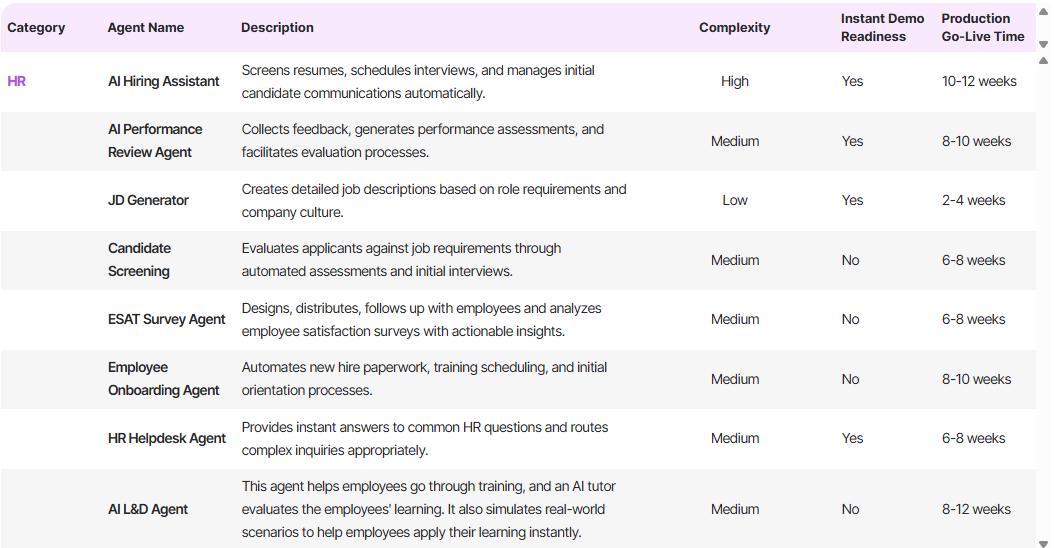
Lyzr’s HR Agents optimize key HR functions by automating repetitive tasks, enhancing decision-making, and improving employee experiences. Here’s how they help:
- Efficient Hiring and Candidate Management: The AI Hiring Assistant and Candidate Screening Agent streamline recruitment by screening resumes, scheduling interviews, and evaluating candidates against job requirements. This speeds up hiring while ensuring better candidate matches.
- Data-Driven Performance Reviews: The AI Performance Review Agent automates feedback collection and performance assessments, enabling managers to focus on meaningful discussions instead of administrative work.
- Simplified Job Description Creation: The JD Generator creates precise, role-specific job descriptions based on company culture and role requirements, saving HR teams time and effort.
- Improved Employee Onboarding: The Employee Onboarding Agent automates paperwork, training scheduling, and initial orientation, ensuring a smoother and faster onboarding process for new hires.
- Instant HR Support for Employees: The HR Helpdesk Agent provides immediate responses to common HR questions and routes complex inquiries to the right personnel, reducing response times and improving employee satisfaction.
- Smarter Learning and Development: The AI L&D Agent enhances training by providing personalized learning experiences and simulating real-world scenarios, helping employees apply their knowledge effectively.
- Proactive Employee Engagement: The ESAT Survey Agent gathers and analyzes employee feedback through automated surveys, helping HR teams measure satisfaction and address concerns before they escalate.
How to build HR Agents using Lyzr?
Lyzr Agent Studio makes building secure, reliable AI agents seamless integrate them into your workflows, automate tasks, and customize them to fit your business goals. When using generative AI in an insurance agency, it is crucial to protect sensitive information to prevent accidental data leaks.
1: Define Your Agent: Give your agent a name and purpose. Choose your preferred LLM provider and model, then outline the instructions or idea to get started.
2. Easy integrations: Run your agent, ask questions, and evaluate its responses. Refine the prompts as needed for perfection.
3. Rapid Development and Testing: Launch your agent as an app on Lyzr’s app store and let others discover, access, and benefit from your creation.
4. Use pre built agents from the lyzr marketplace
Ready to get started? Try out our platform now or Interested in knowing more? Book a demo today or build yoru own on the studio.
FAQs: AI in Performance Management
1. What is AI in performance management?
AI uses data to monitor, evaluate, and improve employee performance. Tools like Lyzr provide real-time insights and personalized growth suggestions.
2. How can AI improve performance reviews?
AI automates data collection, identifies trends, and delivers actionable insights. Lyzr helps managers streamline reviews and focus on coaching.
3. What are AI-driven performance insights?
These insights highlight strengths, gaps, and opportunities for growth. Lyzr agents provide continuous, real-time updates.
4. Can AI help with 360-degree evaluations?
Yes. AI collects feedback from peers, managers, and reports, reducing bias. Lyzr automates this process efficiently.
5. How does AI assist with goal management?
AI suggests role-specific goals, tracks progress, and aligns objectives with company strategy. Lyzr ensures goals are realistic and impactful.
Book A Demo: Click Here
Join our Slack: Click Here
Link to our GitHub: Click Here

